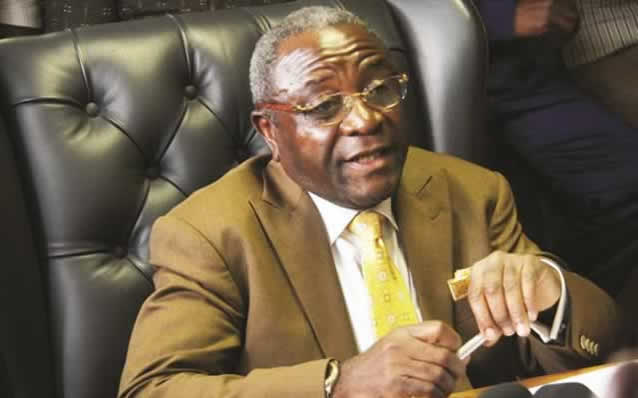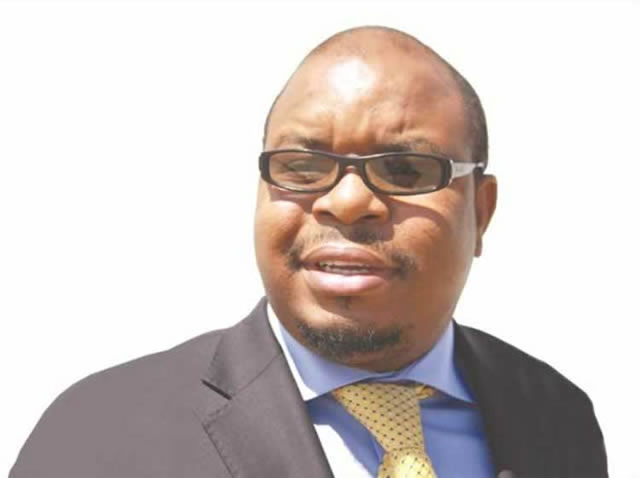In defence of Cuthbert Dube

Amai Jukwa
Context is important. We were living in generous times. Incompetent town clerks were pocketing handsome salaries and CEOs of bankrupt broadcasters were well fed. On Muchechetere’s exit, he did not seem to have ever missed a meal. Not to be left out, even lowly clerks at the CMED had devised elaborate scams to milk the state. Against this background, Cuthbert Dube’s excesses seem to have been in keeping with the spirit of the times. He certainly was not alone.
I find it curious that nobody has asked Luxon Zembe how much he received in sitting allowances during what he now wants to paint as a benign role on the PSMAS board.
Therein lies Cuthbert Dube’s defence. One cannot earn US$6 000 a month for sitting on a board for a few hours and then claim they thought the CEO was taking home US$15 000 for his monthly labours.
It’s implausible and Luxon Zembe must come clean and then also walk the plank. Dube was not alone.
My initial reaction, which viewed these perks as grossly immoral, has been somewhat tempered.
The salaries were merely opportunistic and I suspect that many of those who are readying to condemn Muchechetere would have done the exact same thing if they had the chance.
The recent expenses scandal, which saw British legislators imprisoned for false accounting, is evidence that this problem is not unique to Zanu-PF as some would like to persuade us. Quite apart from being the work of incurably greedy African savages, it is simply the work of fallible human beings.
Oversight and transparency are regularly touted as key constituents of good governance and this for good reason. In the absence of oversight human vices such as greed manifest and people will take whatever they can.
Human beings are not nearly as civilised as they fancy themselves. Even otherwise decent men would be tempted to hoard given the gross lack of oversight that prevailed and still does. My point here is that we should resist the temptation to paint Muchechetere’s crew as being somehow evil.
They are not. Instead, it is a porous regulatory framework that brought the worst out of them.
The British ambassador Deborah Bronnert — evidently delighted at these revelations and an opportunity to educate the natives — took to social media and pointed out that Britain enjoys a more excellent system in which salaries and benefits above a certain threshold must be made public.
Grudgingly, I concur.
Such a policy introduces transparency and empowers civilian oversight in so far as executive remuneration is concerned.
If those in office award themselves hefty salaries and perks and fail to make them public as demanded by law then that would immediately constitute criminal abuse of office.
As it is Muchechetere could walk away unscathed unless of course the allegations that he inflated a broadcast van invoice and other rumoured misdemeanours are proven true.
While we are distracted with Salary-gate, Press reports that ZINARA awarded a two-million-dollar road construction contract without going to tender have largely gone unnoticed.
Equally troubling are allegations surrounding the construction of the Airport Road at a cost of US$80 million when Zimplats built a road five times as long for five times less than that amount. In the latter allegation, there is a prima facie case of impropriety.
My point in raising these particular violations, which are separate from the salary scandal, is to illustrate that we do ourselves a disservice by obsessing over Muchechetere instead of attacking the real demon, which is a lack of transparency and oversight.
The State Procurement Board has become a haven for unimaginative miscreants. Most recently we read shocking reports of an applicant being one of the adjudicators in a ZESA tender. It was a brazen assault on the integrity of the tender process.
The mischief only came to light when an aggrieved applicant made so much noise as to be impossible to ignore, copying the police CID, the Office of the President and the Anti-Corruption Commission to a scathing letter exposing the collusion.
Why doesn’t the SPB publish every tender online, the resultant bids as well as their reasoning as to why they favoured the winning bid?
This is in no way technically challenging and the only reason why the SPB will not submit itself to such scrutiny is because the people there may be enjoying generous kickbacks.
In such circumstances one understands why they prefer not to be disturbed.
It is not difficult to understand Mahachi’s insolent refusal to furnish the mayor with a salary schedule. He knew full well that it was impossible to justify such generous salaries given the evident failure of his team to solve any of the problems facing Harare.
In the same way, those State enterprises and parastatals who are dragging their feet and are yet to provide the Office of the President with their salary schedules are — quite predictably — covering their tracks and realigning their remuneration before inspection.
The mistake here is to think that salaries are the problem.
They are not.
They simply point to a wider problem of transparency and accountability.
What do we know about the recruitment in these places?
Nothing.
What do we know of procurement? Nothing. Do we have public information on performance?
We do not.
It is only by breaking open the shell of secrecy that surrounds these organisations that we will have lasting solutions.
While the intervention of the President is welcome, questions abound.
It seems terribly inefficient and unsustainable for the Office of the President to serve as a prefect in the hope of moderating the appetites of rapacious managers who will certainly find other ways to milk their various portfolios.
What of the issues surrounding recruitment, procurement, performance and outsourcing — all of which are equally vulnerable to abuse? Surely the President cannot micromanage over five-dozen parastatals and State enterprises? It would seem the only lasting solution is to legally incorporate robust and permanent oversight that puts the activities of state enterprises and parastatals in full public view.
Anything less will not suffice.
Ndatenda, ndini muchembere wenyu Amai Jukwa.










Comments